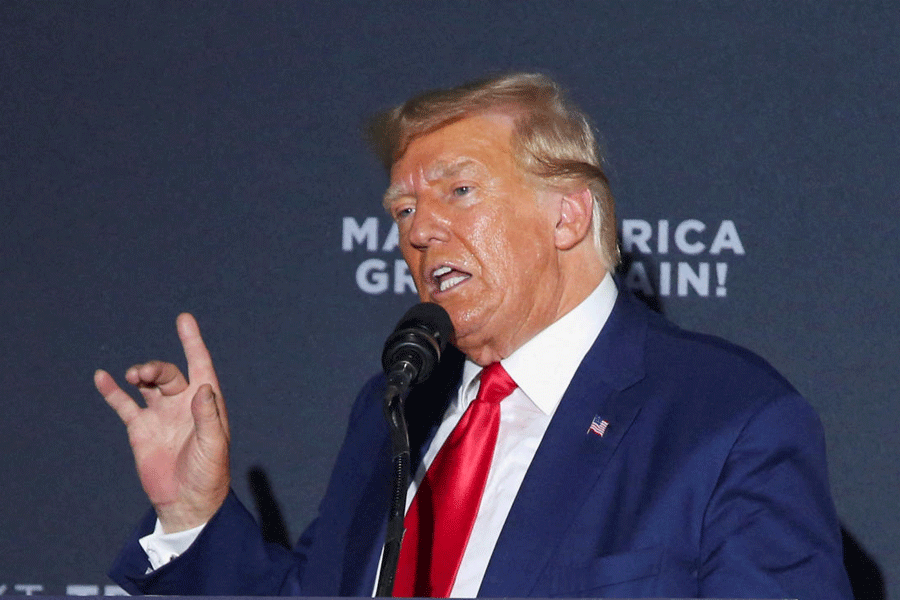Donald Trump won the Iowa caucuses in a landslide on Monday, a crucial first step in his bid to claim the Republican nomination in a third consecutive election as voters looked past his mounting legal jeopardy and embraced his vision of vengeful disruption.
Trump’s record-breaking triumph, called by The Associated Press on Monday night only 31 minutes after the caucuses had begun, gave the former President an important win in a state that had rejected him eight years ago.
But on a bitterly cold night, governor Ron DeSantis of Florida finished in a distant second place, according to the AP. His narrow edge over Nikki Haley in a state where he had increasingly banked his candidacy could provide him some much-needed money and momentum in the battle for the mantle of Trump’s chief rival.
With Trump far ahead in most polls, much of the focus heading into the caucuses had been on the race for second, as DeSantis and Haley, a former ambassador to the UN, spent as much time and money attacking each other as they did the front-runner. With DeSantis finishing ahead of Haley in Iowa, and her leading him in New Hampshire, the possibility of a two-person race remains elusive for foes of Trump, who fear a split field will ease his path to the nomination.
Even before the Iowa results were in, DeSantis had symbolically decided to fly directly to South Carolina after Iowa instead of to New Hampshire, which votes on January 23 and where Haley is making her next stand.
Trump is the first former President in the modern era who has sought to return to the White House. On Monday, he easily exceeded the Republican record of 13 percentage points for the largest victory in a contested caucus. He was close to winning an outright majority of more than 50 per cent, a critical psychological barrier for those in the party still hoping to stop him.
Should Trump ultimately prevail as the nominee, it would set up a historic potential rematch in November with President Joe Biden that could play out on both the campaign trail and in the courtroom.
“I really think this is time now for everybody, our country, to come together,” Trump said in his victory speech, before veering into divisive promises, such as raising deportation levels higher than they have been in decades.
New York Times News Service











